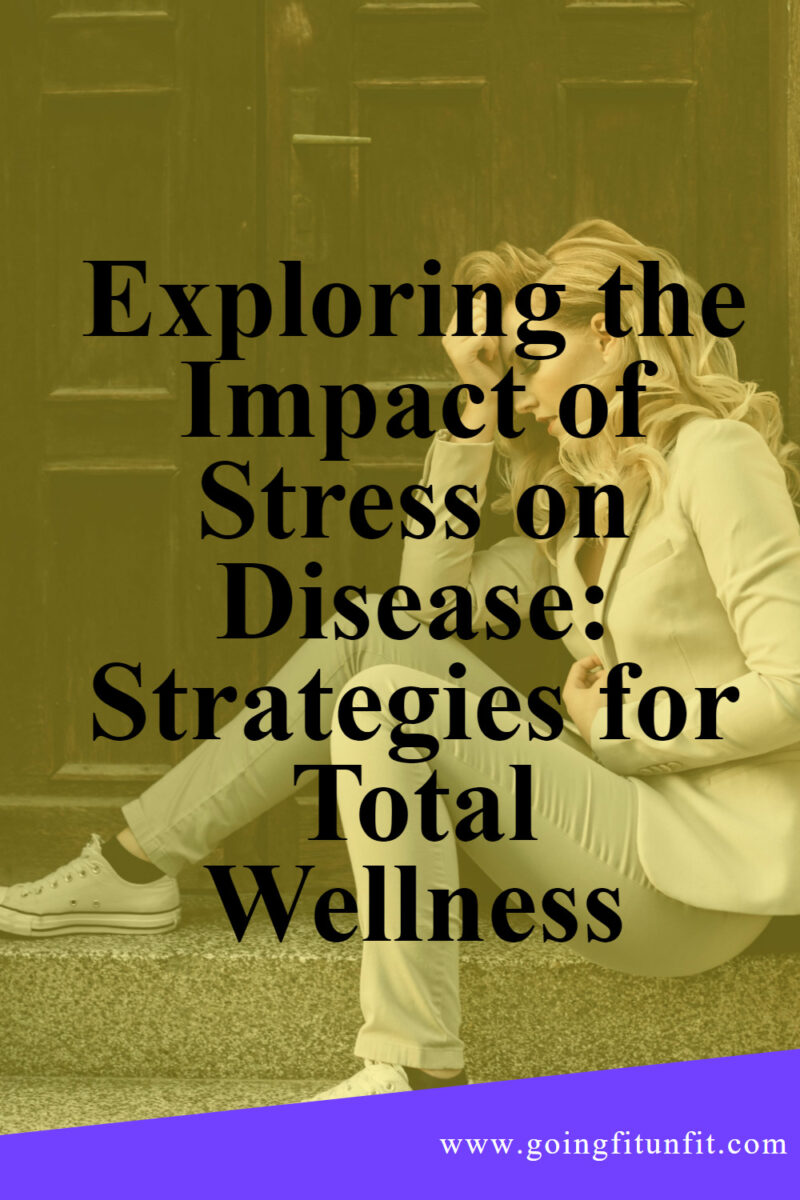
Let’s explore one of the most pressing issues of our time – the relationship between stress and disease and how it impacts our overall health.
From the pressures of work and social life to life-changing events, stress is a ubiquitous part of our lives that can take a significant toll on our mental and physical health. In this section, we will delve into the connection between stress and disease, examining how stress can influence our overall health and well-being.
Research has shown that stress can have a significant impact on the development and progression of various diseases, from cardiovascular disease to cancer, and even mental health conditions like depression and anxiety. Stress can also exacerbate pre-existing conditions and weaken our immune system, leaving us vulnerable to infections and illnesses.
However, the good news is that we can take proactive steps to manage stress and improve our total wellness. In the following sections, we will explore scientifically-backed strategies that can help us reduce the impact of stress on our health and lead happier, healthier lives. Let’s dive in!
Understanding the Relationship Between Stress and Disease
Stress is a normal part of life, but when it becomes chronic, it can have a profound impact on our physical and mental well-being.
The relationship between stress and disease is well-established, with numerous studies linking high-stress levels to the development of various conditions such as heart disease, diabetes, and depression.
When we experience stress, our body’s stress response system is activated, which leads to the release of hormones like cortisol and adrenaline.
While these hormones are important for short-term stress management, chronic stress can disrupt our body’s natural balance, leading to inflammation, immune system dysfunction, and other physiological changes that can contribute to the development of disease.
The Role of Inflammation
One of the key ways that chronic stress can impact our health is by promoting inflammation in the body.
Inflammation is a natural response that helps to protect the body from infection and injury, but when it becomes chronic, it can lead to tissue damage and contribute to the development of chronic diseases like arthritis, asthma, and cancer.
Research has shown that stress can trigger the release of pro-inflammatory cytokines, which are proteins that promote inflammation in the body.
These cytokines can then lead to the development of chronic inflammation, which can increase the risk of disease and worsen existing health conditions.
The Impact on Mental Health
In addition to its effects on physical health, chronic stress can also have a significant impact on mental health.
High levels of stress have been linked to the development of anxiety and depression and can worsen symptoms in individuals with existing mental health conditions.
Stress can also lead to cognitive changes, such as difficulty concentrating or remembering information. This can make it challenging to perform everyday tasks and can hurt work or school performance.
Strategies for Managing Stress and Boosting Total Wellness
Stress is a natural part of life, but it is important to manage it effectively to avoid its negative impact on our health and well-being. The following strategies have been scientifically supported and can help manage stress and promote total wellness.
Mindfulness and Meditation
Mindfulness and meditation practices have been shown to reduce stress and promote relaxation. When practiced regularly, they can improve overall well-being by increasing feelings of calm and relaxation.
There are many ways to incorporate mindfulness and meditation into daily routines, such as taking a few minutes each day to focus on deep breathing or incorporating guided meditation sessions into a daily routine.
Regular Exercise
Regular exercise has many benefits for both physical and mental health, including the reduction of stress. Exercise creates endorphins, which are natural mood-boosting hormones. It also helps to reduce the production of stress hormones such as cortisol.
Individuals can try incorporating daily activities such as walking, cycling, jogging, or yoga to manage stress and promote overall health.
Adequate Sleep
Adequate sleep is crucial for managing stress and promoting total wellness. Lack of sleep can cause stress and anxiety, and it can also worsen existing health conditions.
Establishing a regular sleep schedule and practicing good sleep hygiene, such as avoiding blue light exposure before bed and limiting caffeine intake, can help improve sleep quality and promote relaxation.
Healthy Nutrition
Eating a healthy, balanced diet is crucial for managing stress and promoting overall health. Incorporating plenty of fruits, vegetables, whole grains, and lean proteins can help provide the body with important nutrients and antioxidants that support stress reduction and overall well-being.
Acupuncture
Acupuncture is an alternative therapy shown to reduce stress and promote relaxation. Many people wonder, “Does acupuncture hurt?” This technique involves placing thin needles in specific points on the body to stimulate the body’s natural healing processes. While the idea of needles may seem daunting, most find the experience surprisingly gentle and soothing.
Many individuals have found acupuncture to be an effective way to manage stress and promote optimal wellness.
Individuals can effectively manage stress and promote total wellness by incorporating these scientifically supported strategies into daily routines.
These strategies can help reduce the negative impact of stress on the body and mind, leading to overall better health and well-being.
Conclusion
Stress can significantly impact our physical and mental health, contributing to the development of various diseases and conditions. To achieve total wellness, stress management should be prioritized, and strategies to boost overall health should be adopted.
By taking steps like mindfulness, meditation, exercise, adequate sleep, and healthy nutrition, individuals can reduce the impact of stress on their health. Alternative therapies like acupuncture can also prove beneficial. In conclusion, by implementing these strategies, individuals can reduce the risk of illness and disease and ultimately enhance their overall well-being.









Thanks for this incredible post.
Thank you for sharing
So true that stress has so many negative effects. Thanks for the ways to manage.
For sure! Stress isn’t good for anyone’s health.